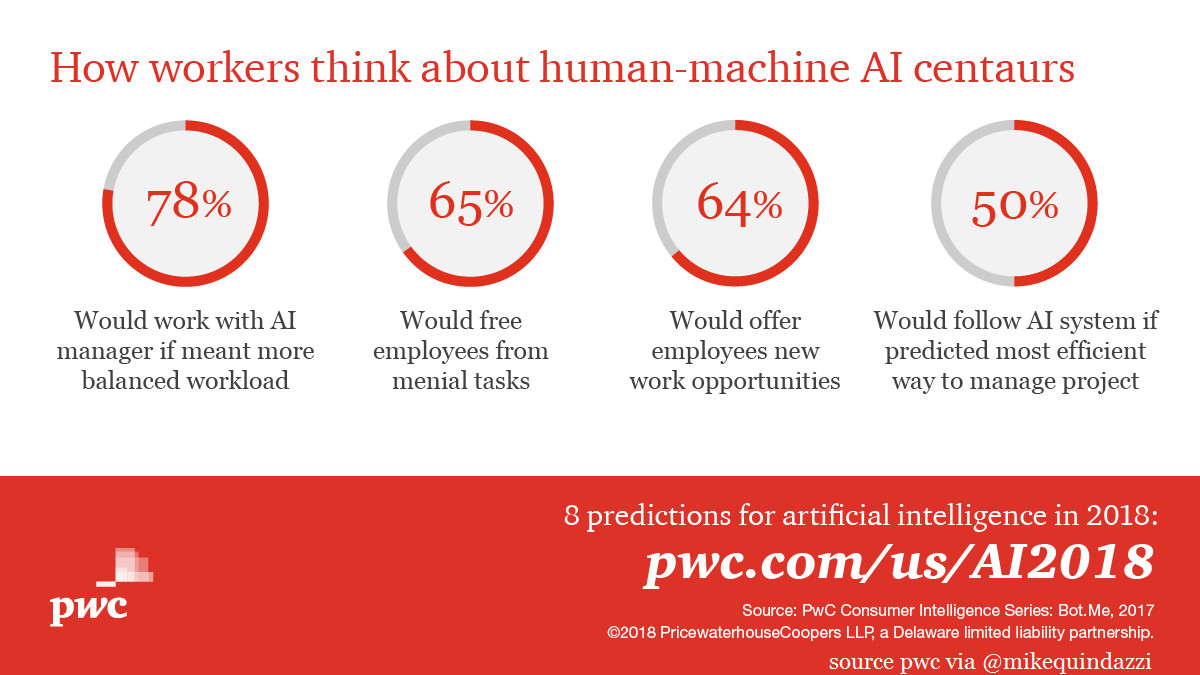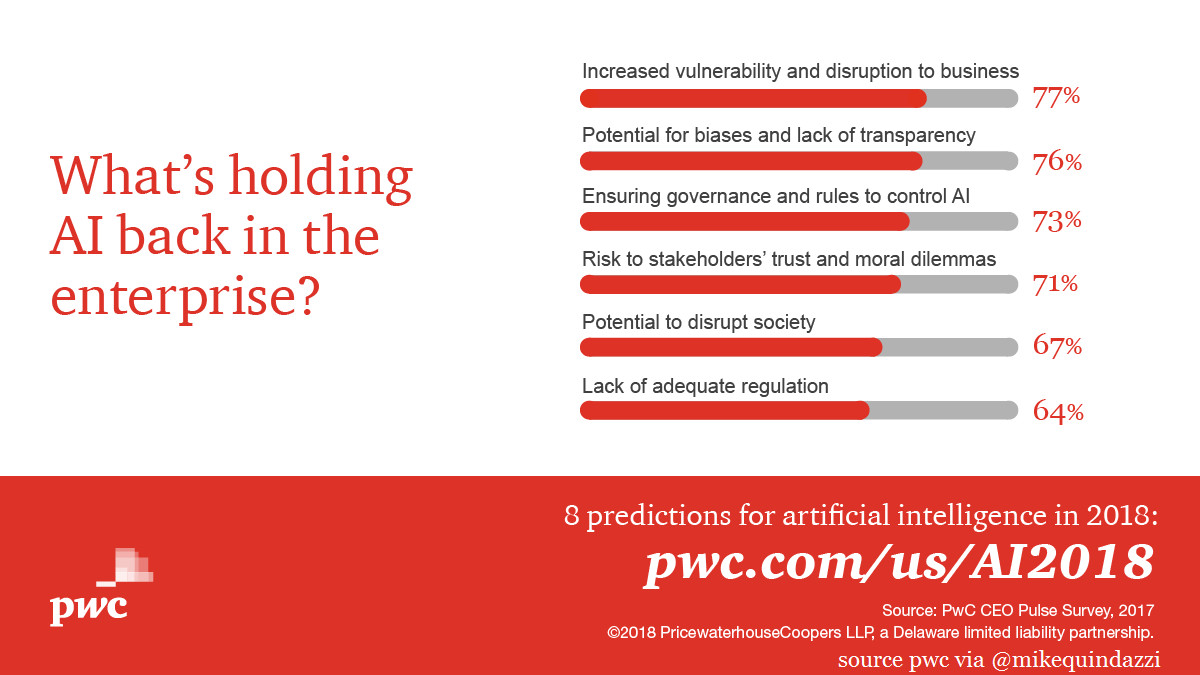8 - AI predictions for 2018 by Mike Quindazzi
Referred Link - https://www.linkedin.com/pulse/8-ai-predictions-2018-mike-quindazzi
Here are 8 Artificial Intelligence predictions/insights to help CxO leaders shape business strategy in 2018:
1. AI will impact employers before it impacts employment
AI likely won’t devastate the job market in the long run—and it certainly won’t do so in 2018. But organizations face a challenge: AI works best when it brings together data and teams from different disciplines. It also requires structures and skills for human-machine collaboration.
2. AI will show up for work
This aspect may not attract media headlines, but AI is ready right now to automate increasingly complex processes, identify trends to create business value and provide forward-looking intelligence. This AI is often “entering through the backdoor” as everyday applications incorporate it.
3. AI will find answers in Big Data
Many investments in data technology and integration have failed to answer the big question: Where’s the ROI? But AI is now delivering business cases for data initiatives, and new tools are making these initiatives more affordable than before.
4. Functional specialists will decide the AI talent war
It's a race for computer and data scientists, but top tech talent is not enough for success with AI. Organizations need domain experts who can work with AI and AI specialists. They don't have to be programmers but they will have to understand the basics of data science and data visualization and something of how AI “thinks.”
5. AI will fuel cyberattacks but also cyberdefense
Intelligent malware and ransomware that learns as it spreads, machine intelligence coordinating global cyberattacks, advanced data analytics to customize attacks—unfortunately, it’s all on its way.
6. Explainable AI will become a priority
AI taking control of humans isn’t a danger for 2018. It’s not smart enough right now. But AI that acts inexplicably—and therefore makes leaders and consumers wary of using it—is a real risk leading to the rise of ethical AI.
7. AI will join the real arms-race
Governments are working to make sure that their countries are leaders in AI for both economic and reasons of defense. Canada, Japan, the UK, Germany, and the UAE all have national AI plans. Tax reform and deregulation in the US may give AI a boost in the US.
8. AI frameworks will aim to build public trust
Invasion of privacy, algorithmic bias, environmental damage, threats to brands and the bottom line—the fears around AI are numerous. Fortunately, a global consensus is emerging around principles for responsible AI. These principles can safeguard organizations—and position them to reap economic benefits.
4 things c-suite leaders can do today
1. Identify practical problems CEOs, CDOs, CFOs, and CMOs want to solve with AI. US businesses: Consider whether some capital that will be freed up as a result of tax reform might be earmarked for AI investment instead of employee bonuses, shareholder returns, or other investments.
2. Begin upskilling your talent and your workforce: All workers--and Chief Human Resource Officers (CHRO) executives--need to develop AI literacy and a digital mindset for their organizations. Domain specialists will need more advanced skills to help develop and deploy AI.
3. Chief Risk Officers (CRO) can engage in discussions about what responsibility means to your business, its shareholders, customers, partners, and other stakeholders. Consider joining public-private partnerships or getting involved in other collaborative efforts.
4. Discuss with your Chief Information Officer (CIO) or Chief Security Officer (CISO) how your organization is using or plans to use AI in its cybersecurity efforts.










0 comments